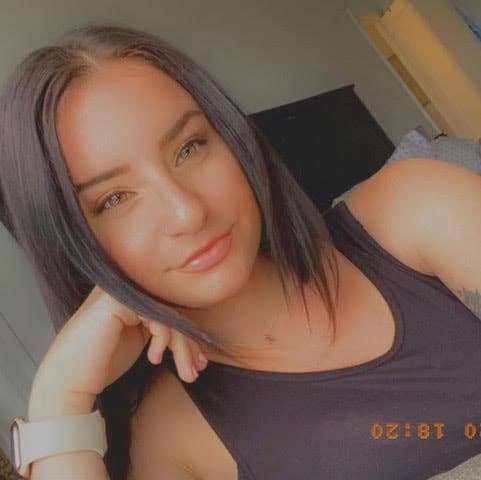Many people navigate their lives with some forms of anxiety. We get stressed and anxious when we feel like we’re about to get some bad news. We get nervous before a big test or a deadline at work. We feel a bit jittery after we have too much coffee in the morning. We are a bit on edge when we send a risky message to someone we are arguing with.
Anxiety, in its natural state, is something many people experience regularly. People get nervous, anxious, worked up over things that, well, are normal to get worked up over. But, there are other people in the world who get anxiety over things that most people wouldn’t dream of feeling nervous about. And, many of those people end up diagnosed with Generalized Anxiety Disorder. One of those people is me.
I was about fourteen when my first therapist mentioned that I had GAD. And, then I was seventeen when a different therapist said I had High-Functioning Anxiety Disorder. Regardless of my diagnosis, I knew that I was someone who experienced nerves and fears a bit more “hyperactive” than my peers and friends around me. It’s not that I couldn’t cope with it, or I couldn’t manage it, but there were days and situations in which I spiraled out of control and felt full-on panic for absolutely no logical reason.
Having a mental health disorder was something that as a teenager was difficult to navigate. There’s no book that tells you exactly what to do and how to do it. It’s not a “one size fits all” type of accessory you pick up at the store. Mental health disorders are something that impact everyone in a very unique, individualized kind of way. My anxiety disorder may trigger me in one place, where someone else feels totally at ease there. It’s nothing that can be worked out and solved simply. And, due to this, it can be hard to explain to people, too.
The stigma behind so many mental health disorders are that they are easily fixed and solved. Many people who don’t undergo some type of mental health challenge in their lives find it hard to understand and empathize with those who do. If you “can’t see it” it “can’t be there,” type of mentality. It becomes increasingly difficult to explain to others when they simply are unwilling to sit down and do research, or read about it, or even listen when you speak.
That’s why dating with a mental health disorder can be horribly defeating
Throughout my life, I’ve always been a “relationship person.” My friends make fun of me because I’ve never been someone who “plays the field” and dates around. I like the stability of being long-term with someone, I like being in love, I like finding someone to fill my voids of time. I love love.
While I’ve been in some really great relationships in my life, I’ve also been in some terribly toxic ones, as well. And, looking back on all of my long-term relationships in my past, one thing that has stood clear to me in my reflections is that none of my partners ever understood, nor supported, my struggles with my anxiety disorder.
It’s not easy to open up to someone who can be closed off and unreceptive to something you are extremely vulnerable about, and it can be even harder to do when people can be absolutely relentless that it’s “all in your mind” or “you’re exaggerating” or “it’s ruining our relationship.” How can someone, simply, want to open up more about struggles they’re going through when they are constantly met with this negative, defeatist mentality?
Simple: they can’t.
For years, I thought that my mental health was something that I was forbidden from talking about with men. I felt like if I did, it would just lead to resentment, fighting, unhappiness, and breakups. I felt like I couldn’t share an intimate part of myself and my life with others in the fear that they would use it against me, as ammunition, in a fight later on down the road.
And, then things changed.
As I got older, I told myself that it was time I take ownership of my mental health and I stop buying into the stigma in society that it’s “wrong” or “made up” or “challenging.” Instead, I told myself that I would be open, honest, and raw with the next person I date, because I don’t want to continue to wear a mask for years, pretending I’m fine when I’m not.
So, that’s what I did. I opened up, I shared, I spilled, I poured myself over the brim in a cup of panic, fear, overthinking, worry, and I shared it all with the person that I love. I told him about my triggers, my traumas, when I feel the most anxious, when I disassociate, what I’m working on in therapy, and how it’s shaped me as a person.
And, the results?
Incredible. My partner knows and understands my anxiety, not just the surface, but the whole thing. Knows my expressions and the look in my eyes when I’m on the cusp of it. Shares grounding exercises with me and meditation podcasts to ease my triggers. Researches techniques and tips to help me decompress. Finds the tea that I like when I’m at my worst. Offers to listen. Offers support. Offers love. Offers a hand.
I owned it. I opened it all. I shared every wound and every scar. I wore it on my chest like a badge of honor. And I’ll never go back to being ashamed of it again.

Lex Gabrielle is a lifestyle writer who believes in messy buns and 3+ cups of coffee a day. When she’s not writing, she teaches high school English, journalism, and creative writing. You can see more of her work at www.lexgabrielle.com.
